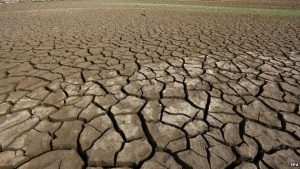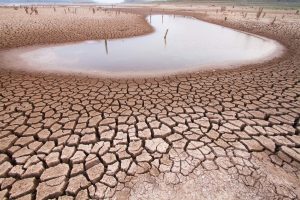Is the Euphrates River Dried Up
Have you ever wondered about the captivating history and significance of the Euphrates River? This ancient waterway has played a pivotal role in the development of civilizations and has been a source of intrigue for centuries. In recent times, concerns have arisen regarding the apparent decline of the river’s water levels. In this article, we will dive into the mystery surrounding the potential drying up of the Euphrates River, exploring its historical importance, current state, and the possible reasons behind its changing condition.
The Historical Significance of the Euphrates River
- Birthplace of Civilization
The Euphrates River holds a prestigious place as one of the cradles of civilization, nurturing early societies such as the Sumerians and Babylonians. Its fertile banks provided the resources necessary for agricultural practices, leading to the growth of urban centers and complex cultures.
- Trade and Transport
Serving as a vital trade route, the Euphrates facilitated the exchange of goods and ideas between civilizations. It contributed to the prosperity of empires by connecting distant regions and fostering economic growth, and cultural exchanges.
The Current State of the Euphrates River
- Diminished Water Levels: A Concerning Trend
Reports and satellite imagery indicate a significant decrease in the water levels of the Euphrates River in recent years. This decline has raised concerns about its potential drying up and the subsequent impact on the environment, communities, and economies that depend on it.
- Ecological Consequences
The dwindling water levels of the Euphrates can lead to devastating ecological consequences. Aquatic habitats may be compromised, endangering various species that rely on the river for survival. Additionally, reduced water flow can disrupt sediment transportation, affecting soil fertility and agricultural productivity. Also, read What is a Catastrophic Implosion
Factors Contributing to the Decline
- Dams and Water Management
The construction of dams along the Euphrates and its tributaries for irrigation, hydroelectric power, and water storage has altered the river’s natural flow. While these projects offer benefits, they can also hinder the river’s ability to maintain its ecological balance.
- Upstream Water Usage
Upstream countries’ increasing demand for water has led to significant withdrawals from the Euphrates, affecting downstream regions’ water availability. The political complexities surrounding water-sharing agreements have further exacerbated the situation.
The Search for Solutions
- International Cooperation
Addressing the challenges faced by the Euphrates River requires collaborative efforts among the countries sharing its waters. Diplomatic negotiations and agreements can pave the way for sustainable water management practices that benefit all stakeholders.
- Eco-Friendly Infrastructure
The development of eco-friendly infrastructure, such as fish passages and sediment bypass systems, can help mitigate the adverse effects of dams on the river’s ecosystem. These solutions aim to restore natural processes and habitats.
Role in Modern Agriculture:
The Euphrates River remains a lifeline for modern agriculture. Farmers rely on its waters for irrigation, contributing to food production across the region. However, as water scarcity becomes a growing concern, striking a balance between agricultural needs and sustainable water management is crucial.

Environmental Impact:
The Euphrates River sustains diverse ecosystems and supports a variety of flora and fauna. Changes in its water levels can disrupt these ecosystems, affecting biodiversity and potentially leading to irreparable damage. Maintaining a healthy river flow is essential for the well-being of both nature and humans.
Geopolitical Implications:
The river’s waters traverse multiple countries, making it a geopolitical focal point. Disputes over water allocation and dam construction have occasionally strained relations between nations. Collaborative efforts are necessary to ensure equitable water distribution and prevent conflicts.
Potential Solutions and Conservation Efforts:
Addressing the concerns surrounding the Euphrates River requires a multifaceted approach. International cooperation, sustainable water management practices, and investment in alternative water sources are steps in the right direction. Conservation efforts must be a collective endeavor to secure the river’s future.
The Current State of the Euphrates River
Addressing Concerns and Speculations
In recent times, concerns have emerged about the diminishing water levels of the Euphrates River. Reports of droughts, dam construction, and water mismanagement have sparked debates about the river’s health. While some argue that these concerns are exaggerated, others point to satellite images showing noticeable reductions in the river’s width and volume. It’s essential to understand the complex factors contributing to these changes.
Human Activities and Environmental Impact
The construction of dams along the Euphrates River has significantly altered its flow. These dams, built for irrigation, hydroelectric power, and flood control, have disrupted the natural rhythm of the river. Additionally, increasing water demand from agriculture and urbanization has strained the river’s resources. Such human interventions have raised questions about whether these actions have pushed the Euphrates to the brink of drying up.
The Potential Consequences
Impact on Ecosystems and Biodiversity
If the Euphrates River were to dry up, the consequences would be far-reaching. The river and its surrounding wetlands are home to a diverse range of flora and fauna. The disappearance of the river could lead to the extinction of several species, disrupting the delicate balance of ecosystems that rely on its waters.
Societal and Geopolitical Ramifications
Beyond the ecological implications, the drying of the Euphrates River could have significant societal and geopolitical effects. The river’s waters are essential for agriculture, providing livelihoods for countless communities. A reduction in water availability could exacerbate conflicts over resources, adding strain to an already volatile region.

Looking Ahead: A Call to Action
Navigating the Challenges
As we contemplate the mystery of whether the Euphrates River is dried up, it’s crucial to acknowledge the complexities at play. Addressing the issues requires international collaboration, responsible water management, and sustainable development practices. The future of the Euphrates depends on our ability to strike a balance between human needs and environmental preservation.
Conclusion
In conclusion, the mystery surrounding the potential drying up of the Euphrates River is a matter of global concern. While the river’s historical significance is undeniable, its current state raises questions about the future. By acknowledging the complex interplay of factors contributing to its decline and seeking collaborative solutions, we can strive to ensure the Euphrates River continues to flow as a symbol of life, culture, and shared heritage.
FAQs
Q: Can the declining water levels of the Euphrates River be reversed?
A: Reversing the decline requires concerted efforts in sustainable water management, international cooperation, and eco-friendly practices.
Q: What are the potential consequences of the river drying up?
A: Consequences may include ecological imbalances, threats to aquatic life, reduced agricultural productivity, and impacts on local economies.
Q: Are there any ongoing initiatives to address the issue?
A: Yes, various countries are engaged in discussions and projects to address water management and conservation along the Euphrates.
Q: How can individuals contribute to saving the Euphrates River?
A: Individuals can raise awareness about the issue, support organizations working on water conservation, and practice water-saving habits in their daily lives.
Q: What is the significance of the Euphrates River in religious and cultural contexts?
A: The river holds significance in various religious and cultural narratives, often symbolizing life, fertility, and connection between communities.
